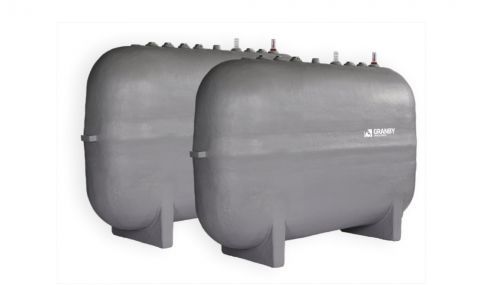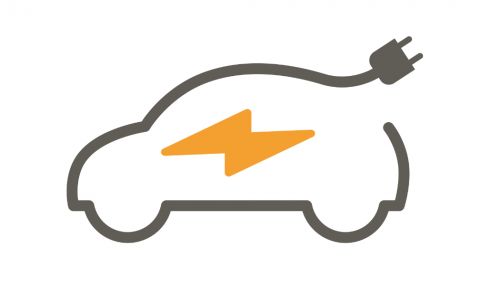All
Recommended Practices

NEFI’s Recommended Business Practices for Heating Fuel Dealers During the Coronavirus Pandemic
Click here to download NEFI’s Recommended Business Practices guide.
NEFI’s highest priority is the health and safety of our members and colleagues in the heating fuel industry as well as their employees and customers. To help protect your business and our industry, we remain in contact with federal officials and our state association partners, and we will continue to coordinate with them in order to provide the best information and resources on COVID-19.
It is absolutely imperative that your company takes immediate precautions to protect the health and safety of your employees and customers. At press time (March 18) NEFI recommends the following actions. This list of Recommended Business Practices will continuously be updated online via NEFI’s Coronvirus Action & Resource webpage located at nefi.com/coronavirus. As always, please contact your company physician and legal counsel.
Please note: the coronavirus is highly contagious; it has an incubation period of up to two weeks, during which individuals could be asymptomatic or experience only mild symptoms yet remain capable of spreading the virus. When an individual is symptomatic with a fever (100.4º or higher) or dry cough, the virus is even more likely to spread. In addition to implementing the recommended practices below, NEFI strongly recommends consulting the CDC website (cdc.gov/coronavirus) as well as a company physician and legal counsel.
Recommended Practices for Everyone
- Frequently wash hands with soap and water for at least 20 seconds.
- If soap and running water are unavailable, use hand sanitizer containing at least 60% alcohol.
- Avoid touching your eyes, nose and mouth.
- Implement social distancing measures, including maintaining six feet of distance from colleagues, employees and customers whenever possible.
- Avoid contact with any individuals who are showing symptoms of the coronavirus, including fever, coughing and/or shortness of breath.
- Cover coughs and sneezes with a tissue and dispose of it immediately.
- Communicate regularly with suppliers, employees and customers to keep them informed of any changes to your business.
Recommended Practices for Company-Customer Interactions
- Whenever possible rely on phone, text, email, teleconferencing, or other electronic communication methods to communicate with customers, instead of in-person conversations.
- If available, wear facemasks and gloves on all service calls. Follow established glove and mask protocols, including proper disposal.
- If your company offers online delivery/service requests and payments, encourage customers to pay their bills online and to call your office only in the event of a no-heat emergency or equipment shutdown.
- Fuel deliveries made to customers' homes present low risk factors. However, if possible, send delivery and service invoices by mail or switch to electronic invoicing instead of leaving invoices at the door.
- Avoid all direct contact with customers and maintain the maximum distance possible: at least six feet.
- On service calls, if the customer has separate access to their heating or air conditioning system, try to request in advance that they make the area available to you directly, e.g., opening bulkheads, cellar doors, etc.
- If the unit is a hot air or air conditioning system, try to avoid opening parts of the system through which air flows, including filters. Rather than installing filters, leave them for the customer to install.
- Before entering a customer's home, if anyone is present, ask if they or anyone in the household is sick in any way or experiencing symptoms, including fever, coughing and/or shortness of breath. If the customer answers in the affirmative, contact your employer for further instructions prior to entering.
- If an employee develops COVID-19 symptoms, immediately notify all customers who the employee was in contact with while symptomatic and during the 48-hour period prior to symptom onset. If the employee followed the above protocol, the customer's risk of exposure should be minimal. See section below for further guidance related to symptomatic employees and potential exposure.
Recommended Practices for Employer-Employee Interactions
- Follow the guidelines above for minimizing risk of exposure.
- Clean and disinfect surfaces that are touched frequently. These include desks, keyboards, office and mobile phones, doorknobs, faucet handles, vehicle door handles, steering wheels, etc.
- If possible, instruct delivery and service personnel to perform their duties without interacting in person with office staff. For example, electronically send work orders, delivery tickets and driver routes.
- Employees should be instructed to immediately notify their employer of a potential exposure to COVID-19. Incidents of "potential exposure" include being in a household or other confined space with a presumably infectious person; or coming within six feet of such an individual.
- Employers should measure a potentially exposed employee's temperature and assess symptoms prior to them starting work. Ideally, temperature checks should happen before the individual enters the office or jobsite.
- A potentially exposed employee should be required to wear a facemask, whenever in the workplace or jobsite, for 14 days after last exposure. Employers can issue facemasks or approve alternative or homemade face coverings in the event of shortages (sewing patterns for facemasks are available under Other Important Resources).
- Employees should be sent home immediately if symptoms develop. Advise the employee to follow CDC guidelines for managing symptoms at home. His or her workspace and company vehicle should be immediately cleaned and disinfected. Identify individuals who were potentially exposed to the sick employee while he or she experienced symptoms or during the 2 days prior to symptom onset. Those potentially exposed employees should be subject to the protocol described above.
- Employees who are symptomatic and isolated may return to work after meeting conditions described by the CDC, as outlined here.
- Allow employees to stay home to care for sick family members or for children if childcare is otherwise unavailable.
- Where possible, segment work teams into isolated smaller units so that an outbreak in one unit doesn't necessarily affect all.
- There are many rapidly changing laws and regulations related to sick time, paid leave and essential employees. Contact your state or local association as these differ dramatically depending on location and continue to change as the situation evolves.
There are many rapidly changing laws and regulations related to sick time, paid leave and essential employees. Contact your state or local association as these differ dramatically depending on location and continue to change as the situation evolves.
Related Posts
 U.S. Competing to Secure Critical Minerals
U.S. Competing to Secure Critical Minerals
Posted on June 16, 2025
 The Clean Air Act, the EPA, and State Regulations
The Clean Air Act, the EPA, and State Regulations
Posted on May 14, 2025
 Day Tanks Support Back-up Generators in Extreme Conditions
Day Tanks Support Back-up Generators in Extreme Conditions
Posted on March 10, 2025
 Major Breakthrough in Lithium-Ion Batteries
Major Breakthrough in Lithium-Ion Batteries
Posted on February 12, 2025
Enter your email to receive important news and article updates.
